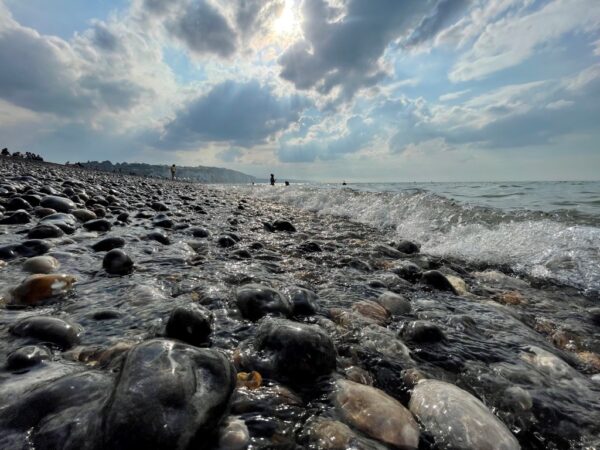UK Government launch Storm Overflows Discharge Reduction plan / Hundreds of coastal overflow sites ‘not included’ in UK government sewage plan / UK accused of threatening health and marine life on the French coast.
Marine Conservation Society analysis says 600 coastal overflow sites will continue to spill
Government plans to reduce sewage spills in English waters fail to include hundreds of storm overflows into estuaries and the sea, according to new analysis by the Marine Conservation Society (MCS) and reported in the Independent.
In the government’s draft storm overflow discharge reduction plan the only coastal overflows that must cut spills are those near designated bathing sites, but it’s not clear what distance is classified as “near” one, according to the MCS.
Its analysis found that around 600 coastal sites therefore won’t have to reduce the number of times they spill sewage into the sea, some of which could be near Marine Protected Areas.
“Defra can’t provide a list to us of the storm overflows which aren’t going to included [in the targets] – which is ridiculous in itself – so these overflows could be discharging into marine protected areas, shellfish waters or other beaches which are not designated as bathing waters,” said Rachel Wyatt, water quality policy and advocacy manager at MCS.
In 2021, untreated sewage was spilt 66,286 times, for a total of 440,508 hours, within one km of marine protected areas, which are home to some of the most important habitats and marine life in the country, according to the MCS. The full news report in the Independent can be read here.
UK accused of threatening health and marine life on the French coast
Meanwhile, the UK is threatening health and marine life on the French coast by allowing raw sewage to be dumped in the Channel and North Sea, say three Euro MPs. The BBC has reported that the French MEPs accuse the UK of neglecting environmental commitments and risking marine life and fishing.
Since its departure from the European Union, the United Kingdom had neglected its environmental commitments, the MEPs said in a letter calling for legal or political action from the European Commission.
British water companies have said they are investing in solving the problem. A UK government spokesperson said their allegation was “simply not true”.
One of the three MEPs, Pierre Karleskind, chairs the European Parliament’s fisheries committee. The UK could not be allowed to neglect commitments made under Brexit and jeopardise 20 years of European progress on water quality standards, he argued.
The MEPs warn that in the short term the sewage leaks risk bathing waters on the French coast and could also harm marine biodiversity, fishing and shellfish farming. “The Channel and the North Sea are not dumping grounds,” said Stéphanie Yon-Courtin, a Normandy politician who is also on the EU parliament’s fisheries committee. The BBC news report can be read here.
UK Government launch Storm Overflows Discharge Reduction plan
Defra have announced the new storm overflows discharge reduction plan, which sets stringent new targets to protect people and the environment. This will require water companies to deliver the largest infrastructure programme in water company history.
Water companies will have to achieve targets set out in the plan:
- by 2035, water companies will have to improve all storm overflows discharging into or near every designated bathing water; and improve 75% of overflows discharging to high priority nature sites
- by 2050, this will apply to all remaining storm overflows covered by our targets, regardless of location
Overflows that are causing the most harm will be addressed first to make the biggest difference as quickly as possible, and water companies will be expected to consider nature-based solutions in their planning.
Defra’s news release can be found here and the policy paper here.

No Comment